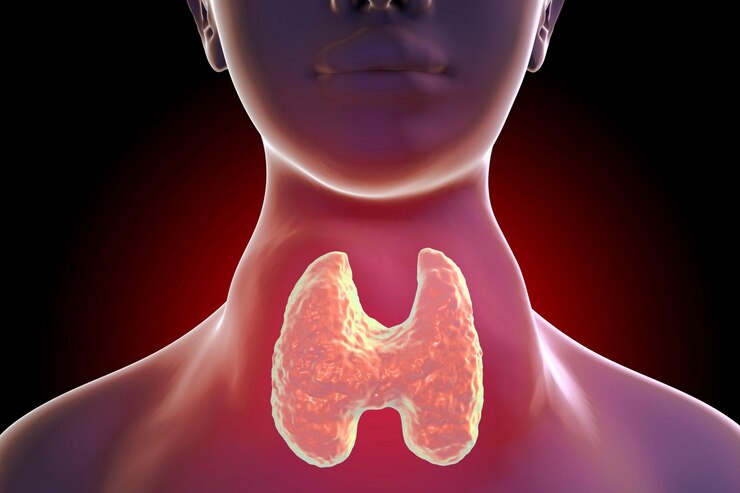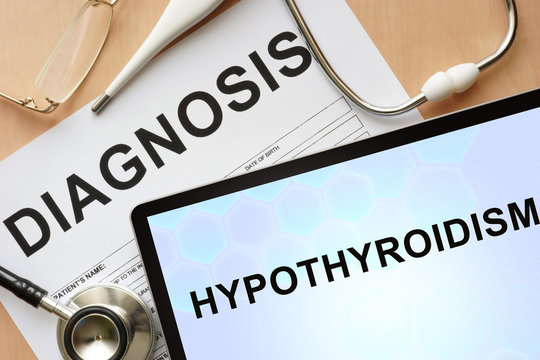The Emerging Role Of Telemedicine In Hypothyroidism Care
In the ever-evolving landscape of healthcare, telemedicine has emerged as a transformative force, breaking down barriers and providing accessible, efficient, and patient-centric care. This digital revolution has not only changed the way we approach routine medical consultations but has also made significant strides in the management of chronic conditions, including hypothyroidism. In this article, we will explore the emerging role of telemedicine in hypothyroidism care, examining its benefits, challenges, and the potential it holds for revolutionizing thyroid health management.
Bridging Gaps in Access to Specialized Care
Hypothyroidism, a condition characterized by an underactive thyroid gland, affects millions of individuals worldwide. While routine care and management are essential, not everyone has easy access to specialized endocrinologists or thyroid specialists. Telemedicine steps in as a solution, bridging geographical gaps and making expert thyroid care accessible to a broader population.
Telemedicine platforms allow patients to connect with endocrinologists and thyroid specialists remotely, facilitating virtual consultations that overcome the limitations of distance and travel. This is particularly valuable for individuals in rural or underserved areas, where access to specialized healthcare may be limited.
Convenient Monitoring of Thyroid Function
For individuals with hypothyroidism, consistent monitoring of thyroid function is crucial to ensure optimal management of the condition. Telemedicine offers a convenient and efficient way to track thyroid hormone levels and adjust medication dosages accordingly.
Through virtual consultations and remote monitoring, healthcare providers can review laboratory results, discuss symptoms, and make necessary adjustments to thyroid medication—all without the need for in-person visits. This streamlined approach not only saves time and resources but also encourages regular monitoring, leading to more effective hypothyroidism management.
Enhanced Patient Engagement and Education
Telemedicine empowers patients by fostering increased engagement and education about hypothyroidism. Through virtual platforms, healthcare providers can deliver personalized information, educational resources, and lifestyle recommendations directly to patients’ devices. This proactive approach ensures that individuals with hypothyroidism have access to the latest information about their condition, fostering a sense of empowerment and self-management.
Virtual platforms also facilitate ongoing communication between patients and healthcare providers. Patients can ask questions, seek clarification about their treatment plans, and discuss any concerns in real time, promoting a collaborative approach to managing hypothyroidism.
Remote Medication Management and Refills
Managing medications is a critical aspect of hypothyroidism care. Telemedicine simplifies the process of medication management by allowing virtual consultations for prescription refills and medication adjustments. Patients can discuss their symptoms, adherence to medication regimens, and any side effects they may be experiencing with their healthcare providers from the comfort of their homes.
This approach not only ensures the timely availability of necessary medications but also reduces the need for unnecessary in-person visits, particularly for routine prescription renewals. It streamlines the medication management process, contributing to better treatment adherence and overall patient satisfaction.
Timely Intervention for Symptom Management
Hypothyroidism symptoms can vary widely among individuals and may include fatigue, weight gain, depression, and cognitive impairment. Telemedicine facilitates timely intervention for symptom management by enabling patients to connect with healthcare providers as soon as symptoms arise.
Virtual consultations allow for real-time assessment of symptoms, enabling healthcare providers to adjust treatment plans promptly. This rapid response to symptom changes contributes to improved patient outcomes and enhances the overall quality of hypothyroidism care.
Remote Thyroid Ultrasound Monitoring
Thyroid ultrasound is a valuable diagnostic tool for assessing the structure and function of the thyroid gland. In the context of hypothyroidism, monitoring for nodules or changes in thyroid size is crucial. Telemedicine platforms are increasingly incorporating remote thyroid ultrasound monitoring, allowing patients to undergo imaging studies at local facilities and share the results electronically with their healthcare providers.
This approach minimizes the need for patients to travel to specialized imaging centers, making thyroid ultrasound monitoring more accessible and convenient. It also facilitates ongoing surveillance for any changes in thyroid health, ensuring timely detection and intervention.
Overcoming Barriers to Regular Follow-ups
Regular follow-up appointments are essential for individuals with hypothyroidism to assess treatment efficacy and address any emerging concerns. However, factors such as travel constraints, work commitments, or mobility issues can create barriers to consistent follow-ups.
Telemedicine removes these barriers by providing a flexible and convenient alternative to in-person visits. Patients can schedule virtual follow-up appointments without the need to take time off work or travel long distances, promoting regular engagement with healthcare providers and fostering continuity of care.
Challenges and Considerations
While the emerging role of telemedicine in hypothyroidism care is promising, it is essential to acknowledge and address the challenges associated with this approach. Some considerations include:
Technology Barriers: Not all individuals may have access to the necessary technology or a reliable internet connection for virtual consultations. Efforts must be made to ensure that telemedicine services are inclusive and accessible to diverse populations.
Diagnostic Limitations: Certain aspects of thyroid evaluation, such as physical examinations, may be challenging to conduct remotely. In such cases, a hybrid model that combines virtual consultations with periodic in-person visits may be necessary.
Data Security and Privacy: As with any digital healthcare platform, ensuring the security and privacy of patient data is paramount. Telemedicine providers must implement robust cybersecurity measures to protect sensitive health information.
Regulatory Considerations: Telemedicine is subject to regulatory frameworks that may vary across regions and countries. Ensuring compliance with local regulations and standards is crucial for the successful implementation of telemedicine in hypothyroidism care.
Conclusion: Transforming Hypothyroidism Care for the Future
The emerging role of telemedicine in hypothyroidism care signifies a paradigm shift in how we approach the management of chronic conditions. By leveraging digital technologies, telemedicine offers a patient-centric, accessible, and efficient model for delivering specialized thyroid care.
As telemedicine continues to evolve, it is likely to become an integral component of comprehensive hypothyroidism management. By overcoming geographical barriers, enhancing patient engagement, and facilitating remote monitoring, telemedicine is poised to transform the landscape of thyroid health, ensuring that individuals with hypothyroidism receive the care they need when they need it.








